News
News
Supporting Student-driven Initiatives
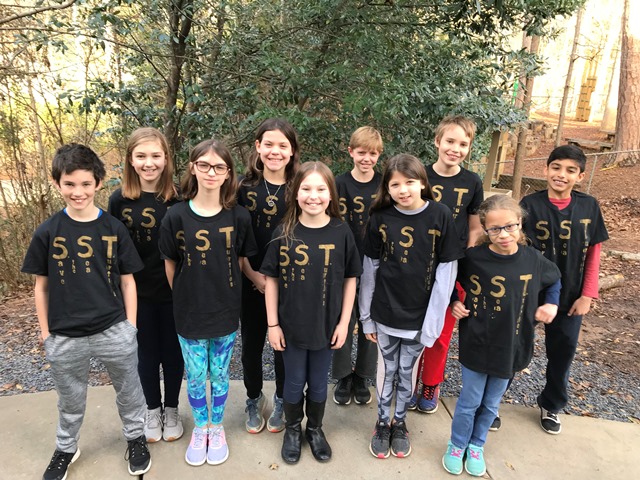
Organic, student-led efforts in support of local and global causes are a hallmark of our globally-aware and engaged students and the Springmont experience. In keeping with our core values, students are encouraged to see beyond themselves and to lead socially useful and purposeful lives.
Student initiatives often reflect a strong awareness of the natural world and each person's responsibility for it. As stewards of our environment, students feel authentically compelled to advocate for the world around them.
Last week's Thursday folder contained information about supporting SST (Save the Sea Turtles). Born of concern for the plight of sea turtles, a group of Upper Elementary students is selling hand-painted t-shirts and accepting donations to fund increased awareness. T-shirts are $8 each and can be pre-ordered in the Front Office. Please consider supporting their effort. Not only will you be helping sea turtles, but you will also be encouraging students to take independent, meaningful action in support of causes that speak to them. Supporting compassion and initiative now will help prepare Springmont students for their roles as our socially-conscious leaders of the future.
It's the Most Wonderful Time of the Year!

It’s Auction time! You don’t want to miss this annual event that puts the FUN in FUNdraising! It will be an enchanted evening of dinner, cocktails, dancing and BIDDING! Buy your tickets before the price goes up (from $100 to $125) on Wednesday, March 27. Just click here to get started!
Drones for Good!
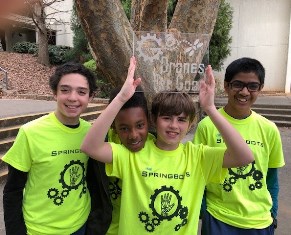
Springmont's Robotics Team, the Springbots, did an amazing job at the G3 Drones for Good competition held at Grady High School on Saturday. Their drone flew really well, scoring 17 points, and the students’ creative problem-solving project, a hypothetical fleet of drones that could help lead people to food, shelter and medical care after a natural disaster, won 1st prize! The judges were so impressed they encouraged our students to start a business.
Final rankings will be released later this week, but overall we think the team placed 7th out of 28 teams. Congrats to team members Ian, Timothy, Mason and Siddhu! They are already looking forward to next year's competition.
Ask a Division Head: How does Montessori prepare my child for his future?
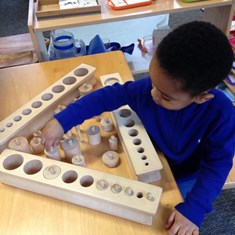
The World Economic Forum recently unveiled a new list of skills key to success in the workplace. The list includes complex problem-solving, critical thinking, creativity, people management and the ability to coordinate with others, emotional intelligence, judgment and decision-making, service orientation and cognitive flexibility. Interestingly, Dr. Montessori recognized the need for these same skills - life skills, not work skills - more than 100 years ago!
Problem-solving, creativity and decision-making are part of every Montessori lesson, beginning on a child’s first day in a Montessori classroom. For example, the Primary level’s cylinder block lesson involves removing ten cylinders from a block and mixing them up on the table. Examining solely the diameter, the child is challenged to match each cylinder to the correct hole in the block. The block is a built-in control of error, meaning the child gets direct feedback about his success and can problem-solve until the right solution is found without reliance on the teacher. In other words, the material creates an opportunity for the child to think critically and resolve problems independently. Once the child understands a material, he is free to use it in combination with other known elements (for example, another set of cylinder blocks that isolates height), combining them in new and creative ways limited only by the child’s imagination. This sparks new discoveries and builds a brain that thinks critically.
Additionally, the Montessori curriculum spiral allows concepts to be continually revisited and built upon as new knowledge is acquired. Although the classroom is divided into traditional curriculum areas including science, geography, language and math, there is no limit to how a child may combine those concepts. The children are constantly challenged to combine newly acquired knowledge with concepts they already know. This allows them to build not only a body of knowledge but more importantly a network of interconnected concepts. In this way, Montessori children learn to see the world in innovative ways, and cognitive flexibility is a natural outcome.
The Montessori philosophy acknowledges that social interactions are as important to a child’s development as intellectual pursuits. Many lessons are designed to meet both needs and allow children to gain experience negotiating a task done within a small group. Over time, each child learns to self-advocate and to recognize, appreciate and draw upon the skills of all group members. They learn that a successful outcome requires coordination and effective negotiation. Imagine how different your workplace might be if each of your co-workers had begun learning those skills before they were six years old! Montessori children benefit from almost two decades of practice before entering the workplace.
Finally, emotional intelligence and service orientation are not forgotten within a Montessori classroom. Grace and Courtesy lessons and modeling appropriate social behaviors are at the forefront of teaching these skills. Reminding young children about the right time to say “Please” and “Thank you,” how to evaluate and express one’s feelings, and the importance of having empathy for others is invaluable. When children understand their own emotions and how their words and actions affect others, they can assume a leadership role in the creation of a peaceful, joyful classroom community now, and in the future, a cohesive, collaborative and productive workplace. The skills your child will need tomorrow are developing in his Montessori classroom today!
Going Once, Going Twice...
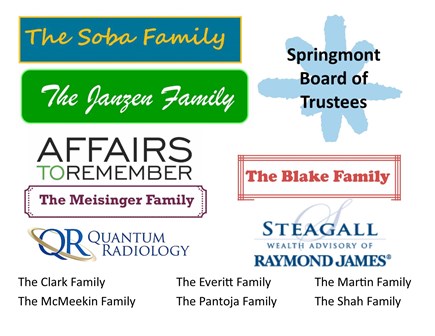
Don’t miss your chance to sponsor the 2019 Springmont Auction: Once Upon a Time! Sponsors receive great marketing benefits, so we ask that everyone secure theirs by this Friday, March 22 in order to make sure your sponsorship is credited in printed promotions. Click here to become a sponsor now!
Alumni Spotlight: Meet Trevor Love

After attending Georgia State 2011-2013 and graduating from Kennesaw State in 2016, Trevor currently works as a Software Engineer at Manhattan Associates while completing his Masters of Science in Analytics at Georgia Tech. Trevor spoke at our recent Alumni Panel and serves as co-chair of Springmont's Alumni Committee. He shares these thoughts about his Springmont experience:
"One of my favorite experiences as a student at Springmont was the five-day camping trip we took to Cumberland Island when I was around 9. Being entrusted with the responsibility of such important tasks as fetching firewood and cutting it into useable pieces gave me a sense of confidence that I will take with me forever. Specifically, I remember overhearing Mark Warren, our then outdoor expedition partner, say to a chaperone as I was showing another student how to use the saw, "Sure they can do it. It just takes a bit of elbow grease." I think that understanding and belief in the capability and willpower of children is what sets this school apart from all the rest."
With Landschool trips for Elementary classes scheduled for several of the next few weeks, we look forward to more students having the opportunity to develop their self-confidence and independence.
Ask a Division Head: My child has become a strong reader. Should I continue reading aloud?
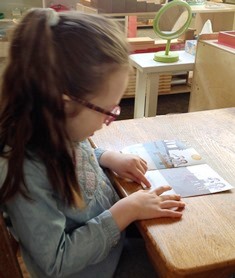
It's always cause for celebration when a child explodes into reading and finds joy in reading to herself. Independent reading helps your child progress with her reading skills and establishes reading for pleasure as a life-long habit. However, your child’s ability to read to herself need not impact your tradition of family-read aloud. Research into the benefits of reading aloud to a child who can comfortably read to herself shows that often a child’s reading level doesn’t catch up to her listening level until around 8th grade, meaning she can easily understand books that are still too difficult for her to decode on her own. Reading aloud is also a great way to introduce your child to new authors, genres and ideas. Additionally, parent-child read-aloud offers quality time together and strengthens family connections through the hectic ‘tween and early teen years. So yes, support your child in finding the time and space to strengthen her silent reading, but keep read-aloud alive in your family – everyone benefits!
Georgia Book Award Voting Underway!
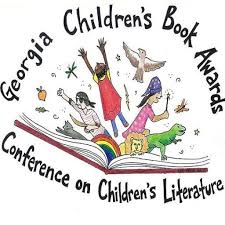
Springmont students, alongside those across Georgia, are experiencing the voting process firsthand as they cast their ballots for the Georgia Book Awards. Understanding the process and one’s responsibility at a young age teaches students about democracy and the importance of informed community engagement.
Media Center Specialist Leslie Wachter communicated the following important points to our students:
• Voting is a special privilege. It is important to do our "due diligence" by reviewing all the nominees.
• Voting is a personal choice. As you consider your decision, express it privately in the voting booth but refrain from influencing your friends. You may or may not want to share your opinion after all the ballots are in.
• There are many good choices! If you are not sure how to choose the best book, think about the writing, the pictures, whether it made you laugh or cry, or if it taught you something new.
A note from the GBA Committee: "Many thanks for continuing to support children’s access to and engagement with a wide variety of literature and for supporting the Georgia Children’s Book Awards. We look forward to hearing the voices of youth throughout the state of Georgia!"Stay tuned! The winning books will be announced at the 2019 Georgia Conference on Children's Literature on March 29.


1 day ago
4 days ago